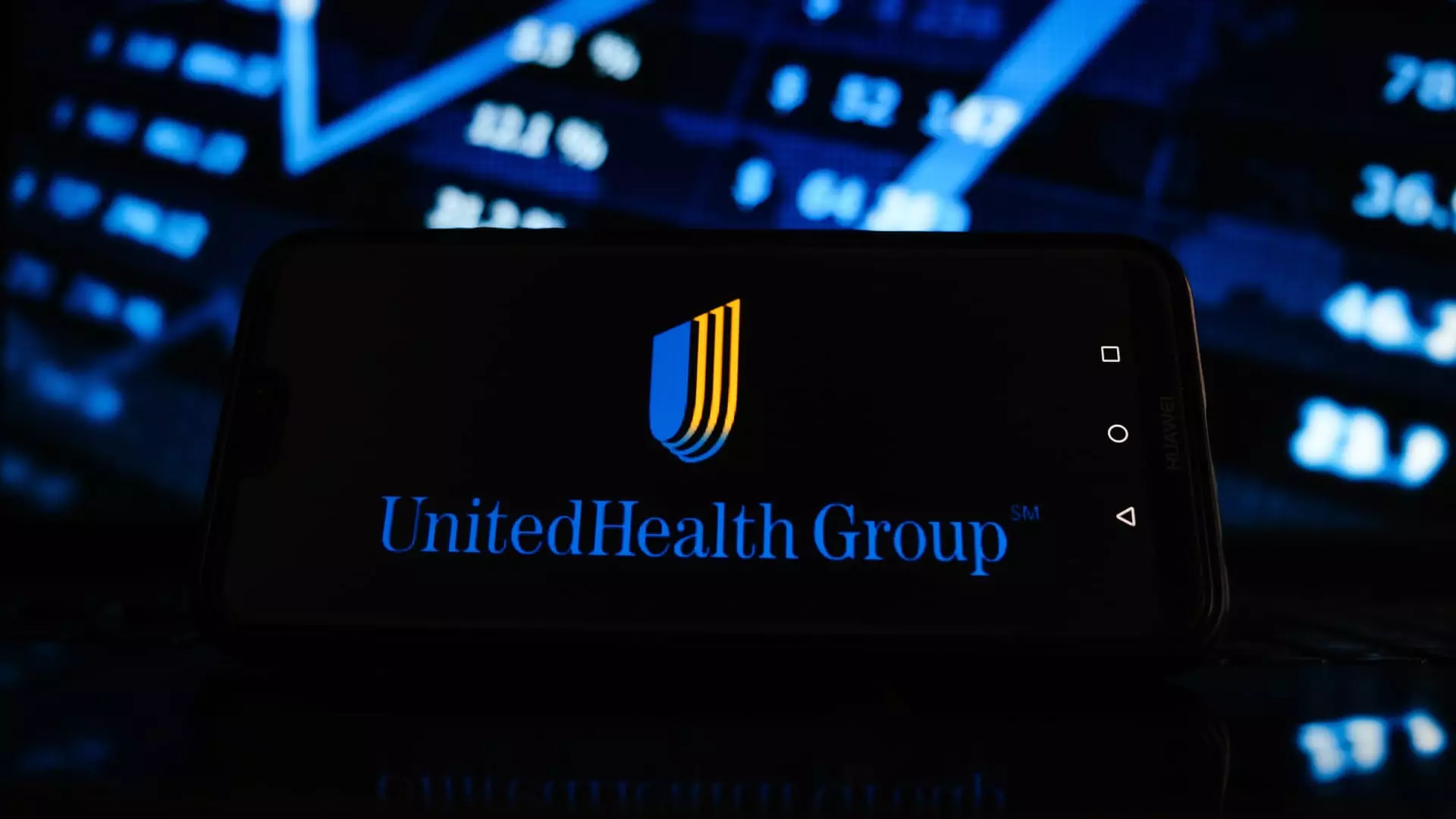While the market has recently been buoyed by positive news, including a temporary tariff agreement between U.S. and Chinese officials that catalyzed a 5.3% rally in the S&P 500, one company continued to languish—UnitedHealth. The health insurance giant, long considered a pillar of stability in the healthcare sector, has frustratingly been absent from this surge. In fact, the firm’s omission is telling; it raises questions about what lies beneath the surface of this historically significant downturn. UnitedHealth’s stock plummeted remarkably, reaching lows not seen in five years, indicating that issues within the company may have triggered this alarming trend.
The Dark Waters of Regulatory Scrutiny
It’s difficult to overstate the impact that regulatory scrutiny can have on a public company, and UnitedHealth has become a case study in crisis management—unfortunately, in a negative light. The recent revelation that the Department of Justice is investigating the company for possible Medicare fraud carries severe implications, not just for its shares, which fell 23% this week, but also for its reputation. Investors have been rattled by the specter of criminal investigations, reflecting a broader discomfort with the ethical standards in our healthcare system. This is a company that, amidst a booming market, found itself under the microscope, casting doubt on its very business model and integrity.
The Numbers Don’t Lie
A closer look reveals that UnitedHealth’s Relative Strength Index (RSI) has plunged to an alarming 14.9, marking it as historically oversold. Such low RSI values signal a stark divergence between market performance and underlying business health. This is particularly significant when juxtaposed against analysts’ optimistic projections suggesting that the firm has an upside potential of over 64%. Here we see a clash of realities: the market appears increasingly disconnected from the realities, as predicted profits become shadows of their former selves.
This phenomenon raises the question of whether the market is merely speculating or genuinely believing in a recovery. For an investor with a center-right perspective, the current situation exemplifies the dichotomy between free-market optimism and the realities of corporate governance. Are we placing too much trust in the resilience of companies without fully considering their accountability?
Historic Context and Comparisons
The storm surrounding UnitedHealth is unprecedented in its severity, reminiscent of the aftermath of the 2008 Financial Crisis when companies faced similar scrutiny and punishment. It’s essential to understand this context both to grasp the gravity of the situation and to recognize the potential for recovery that exists within markets. Wolfe Research has clearly stated that the current RSI levels mirror some of the most challenging times for publicly traded firms. The reality is that, while the potential for a rebound exists, it’s also fraught with risks that could jeopardize any recovery in stock price. Thus, one must tread carefully when weighing the prospects for UnitedHealth.
External Influences and Overall Market Sentiment
Market sentiment appears volatile right now; external influences are rampant. For instance, while stock rebounds in companies like Microsoft show a degree of investor confidence, UnitedHealth’s woes draw attention to a distinct sector vulnerability. The healthcare sector, arguably one of the most essential, is facing growing scrutiny not just from regulators, but from an informed public cognizant of rising medical costs and ethical governance.
As the dynamics of the economy shift, so too do perceptions. The recent climbs in stocks like NRG Energy or Fiserv heighten the focus on what companies are doing right, adding pressure to those that are faltering. It’s an echo of the market’s sentiments: if one sector stumbles, others are eager to capitalize on its weaknesses.
Intersecting Health and Finance: A Bitter Symphony
The issues at UnitedHealth serve as a stark reminder of the often tumultuous relationship between healthcare and finance. The complexity of healthcare expenditure, particularly in the context of Medicare, adds layers of difficulty when evaluating corporate performance. In an era where transparency is demanded, the murky waters of possible fraud and mismanagement clash violently with the ideals of a free market, leading to discomfort for all stakeholders involved.
In light of these revelations, one cannot help but feel a sense of trepidation about the direction we are heading. Addressing these challenges requires more than just simple financial analytics; it demands a collective ambition to reestablish trust and far-reaching accountability that honors patient welfare over profit margins.

